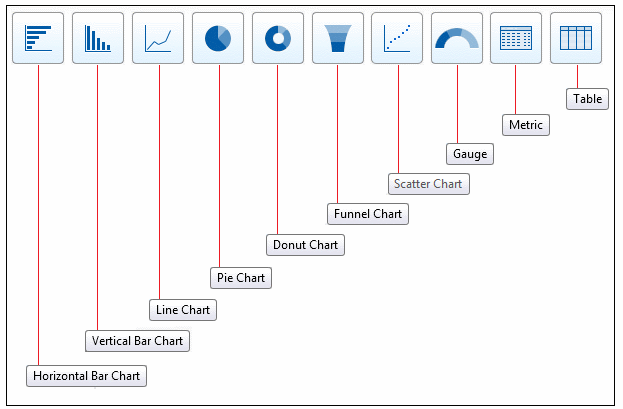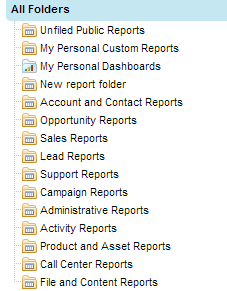Reports and Dashboards in salesforce : In this salesforce tutorial we are going to learn briefly about Reports and Dashboards in salesforce. In this Salesforce Training Tutorial we are going to earn about Reports, dashboards, How to use Report folders.
In salesforce.com we have Reports, Dashboard and folders which are used for data analytics. Trough Reports and Dashboards we generate customized data in the form of visual representation Graphs. pie charts etc. Graphical representation of data is done through Dashboards.
Reports and Dashboards in Salesforce
Reports and Dashboards in salesforce are the analytics tools which allows all the users in an organization to manage the data in the form of reports and visual representation of data.Through reports and Dashboards in salesforce sales team can produce reports of sales pipeline, marketing team can produce reports on the progress of campaigns and users can also create custom reports in salesforce.
Report in Salesforce overview
Reports are very important in salesforce.com which helps to get all the data analytics in salesforce CRM. When creating reports in salesforce the data is displayed in the form of rows and columns. we can set rule criteria to which form the data to be displayed.
Reports can be generated for two types of objects. They are
- Standard Objects
- Custom objects.
Standard Reports : In Salesforce.com we can generate Standard reports for Accounts and Contacts. When a standard report is generated we can forecast details about opportunities, products,Sales, leads and so on.
Custom Reports : Custom Reports are generated for Custom objects. We can create custom reports by the following directions. Go to Setup=>Build=>Create=>Report Types.
Key Components of Salesforce Reports
| Component | Description |
|---|---|
| Report Types | Define the set of objects and fields available for reporting. Standard and custom report types exist. |
| Filters | Criteria to narrow down the data displayed in the report. |
| Groupings | Organize data into categories, such as grouping by date, account, or salesperson. |
| Summary Fields | Calculated fields like sums, averages, and counts that provide aggregate data. |
| Visualization | Charts and graphs that represent data visually for easier interpretation. |
Dashboards in Salesforce Overview
Dashboards in salesforce are the pictorial representation of reports using graphical elements. IN salesforce.com to represent Dashboards we use Dashboard components which are also known as Graphical elements.Some of the dashboard components / graphical elements are
- Charts.
- Gauges.
- Tables.
- Metrics.
- Scatter chart.
- Funnel chart.
- Donut chart.
- Pie chart.
- Line chart.
- Vertical bar chart.
- Horizontal Bar chart
- And also through visualforce pages.
Key Components of Salesforce Dashboards
| Component | Description |
|---|---|
| Dashboard Components | Visual elements like charts, tables, gauges, and metrics that display report data. |
| Data Sources | Each component is based on a specific report that serves as its data source. |
| Dynamic Dashboards | Allow different users to view the dashboard with data filtered based on their access permissions. |
| Dashboard Filters | Enable users to filter all components on the dashboard simultaneously based on specific criteria. |
| Refresh Options | Set schedules for dashboard data to refresh automatically or refresh manually as needed. |
Through Dashboards we are able to get data in the form of Diagrams. Visual representation of data is done through Dashboards in salesforce CRM. We can present data in the form of Charts, gauges, tables, metrics, scatter chart, funnel chart, Donut chart, pie chart, Line chart, Vertical bar chart, horizontal Bar chart and also through visualforce pages.
Folders in reports and Dashboards
Folders in Salesforce.com are those which stores data, files, images, reports and Dashboards analytics data. . The list of folders, which is represented by folder icon will have all report folders.We can create new folders in to store Reports and Dashboards. We can set security to these folder as read-only and read/write.

